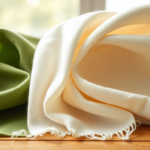The fashion industry is undergoing a profound transformation, and at the forefront of this evolution are female entrepreneurs who are redefining what it means to be a brand in today’s world. As traditional structures continue to crumble, women are stepping into roles that were once dominated by male counterparts, bringing fresh perspectives and innovative ideas. This dynamic shift is not just about clothing; it’s about cultivating a culture that values authenticity, inclusivity, and social responsibility. While the rise of female-led businesses is celebrated, understanding the factors behind this movement reveals a deeper narrative about consumer behavior and industry standards.
As we delve deeper into the significance of female-owned fashion brands, it becomes evident that their emergence is not just a trend but a powerful movement. Female entrepreneurs are not only creating amazing products but are also curating experiences that resonate with their clientele. Many of these brands draw inspiration from their own life experiences, creating connections that foster brand loyalty. This unique intersection of personal storytelling and fashion design is transforming the shopping experience into something meaningful. Furthermore, these brands often focus on sustainability and ethical practices, responding to an audience that is increasingly conscious of their purchasing decisions.
The Growth of Female-Owned Brands

The fashion landscape is witnessing an unprecedented rise in female-owned brands that are beginning to carve their niche in the market. Recent studies show that these businesses are growing faster than ever, accounting for an increasing share of overall fashion sales. Factors such as consumer demand for diverse offerings and the rise of digital platforms have significantly contributed to this expansion. Moreover, shoppers today want to align with brands that reflect their values and beliefs. Consequently, female-led brands are leading the charge—not only in revenue but also in setting trends that appeal to a more conscious and diverse consumer base.
- Consumer Demand for Diversity: Today’s consumers prioritize brands that advocate for inclusivity and represent a wide array of perspectives.
- Social Media Influence: Platforms like Instagram and TikTok allow female entrepreneurs to reach audiences directly, circumventing traditional barriers.
- Empowerment and Representation: Female founders often create supportive communities that uplift other women, fostering a culture of empowerment.
These driving forces illustrate why now is such an exciting time to support female-owned fashion brands. In today’s market, brand stories matter just as much as the products themselves. Consumers gravitate toward brands that are authentic, thereby fueling growth and innovation in the sector. As a result, we’d like to highlight some of the standout brands that embody these principles.
Notable Female-Owned Fashion Brands to Watch

Many inspiring female-led brands are becoming household names, each unique in its mission and design philosophy. Below is a table showcasing a few of these remarkable brands, highlighting their key offerings, focus areas, and impact on the industry.
| Brand | Founder | Key Offering | Impact Focus |
|---|---|---|---|
| Savage X Fenty | Rihanna | Lingerie | Inclusivity and Body Positivity |
| Reformation | Yael Aflalo | Sustainable Fashion | Eco-Conscious Practices |
| Alo Yoga | Adrianne Ho | Athleisure Wear | Wellness and Community |
Challenges Faced by Female Entrepreneurs in Fashion
Despite their successes and the progressive trends we see, female entrepreneurs still encounter a host of challenges that can impede their growth. These challenges range from access to capital to navigating industry biases. The financial hurdles, in particular, remain significant—many women-led businesses struggle to secure funding compared to their male counterparts. It’s crucial to highlight that challenges exist; however, women are using creative solutions to address these obstacles. Collaboration, mentorship, and networking opportunities within their communities can often provide support and resources that are lacking elsewhere.
- Access to Funding: Many female entrepreneurs face challenges in securing investment, which limits their potential for growth.
- Balancing Work and Life: The struggle to maintain a healthy work-life balance can be particularly tough for women entrepreneurs.
- Industry Bias: Ongoing stereotypes and biases within the fashion industry can pose barriers to success for female founders.
By addressing these issues head-on and leveraging community support, female entrepreneurs are pushing boundaries and creating lasting change within the fashion ecosystem. Their resilience and determination are paving the way for a new generation of leaders who are committed to transforming the industry for the better.
The Impact of Female-Owned Brands on the Fashion Ecosystem
The growing influence of female-owned brands extends beyond mere sales; it encompasses a larger narrative about the future of fashion. This change is contributing to a more inclusive culture that champions diverse voices. Female leaders are using their platforms to spearhead initiatives that advocate for social issues, including sustainability and ethical labor practices. These efforts not only impact their brand’s mission but also inspire other companies to adopt similar values. Thus, female entrepreneurs are reshaping industry standards, encouraging collaboration, and fostering community engagement.
Conclusion
In summary, the rise of female-owned fashion brands signifies an exciting transformation within the industry, fostering innovation, diversity, and social consciousness. As consumers advocate for brands that align with their values, the power of female entrepreneurship will continue to grow, paving the way for future success stories. The journey of these women is not just their own; it resonates with countless customers seeking authenticity and representation. It will be thrilling to witness how these pioneering businesses continue to evolve and impact the fashion world.
Frequently Asked Questions
- What defines a female-owned fashion brand? A female-owned fashion brand is one founded, owned, and managed by women, often aimed at empowering women through their business practices.
- How can I support female-owned fashion brands? You can support these brands by purchasing their products, sharing their stories on social media, and engaging with their community programs.
- Why is the rise of female-owned fashion brands important? It fosters diversity, encourages innovation, and challenges traditional gender roles within the fashion industry, resulting in a more equitable marketplace.
- What challenges do female entrepreneurs face in fashion? Challenges include limited access to funding, difficulties in maintaining work-life balance, and overcoming biases in a male-dominated industry.




